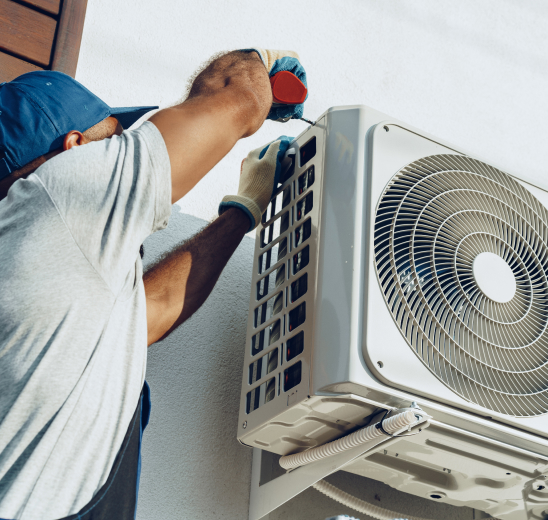Maximizing Energy Efficiency: Lowering Your HVAC Costs

In today’s society, energy efficiency remains a pressing concern for homeowners and companies equally. A major opportunity to save energy is through HVAC systems. Whether you are seeking to reduce your monthly expenses or improve the quality of your living or working environment, understanding the fundamentals of HVAC remains crucial.
This beginner’s guide will explore the fundamentals of HVAC is, equipping you with the insight needed to handle frequent HVAC issues and service your system efficiently. This guide will cover practical tips for improving energy efficiency, ranging from picking the correct HVAC system to optimizing thermostat settings for different times of the year. Participate as we uncover the strategies that can help you reduce costs while ensuring a pleasant environment year-round.
Comprehending HVAC Systems
HVAC, an acronym for HVAC, is essential for maintaining ideal interior settings. It encompasses different mechanisms that manage temperature, moisture, and indoor air quality in home and commercial settings. These mechanisms cooperate to produce a harmonious atmosphere, ensuring that the heat is evenly spread during colder seasons and that fresh air flows during the hotter months.
The working of an HVAC system can be divided into three primary components: heating, air exchange, and climate control. Heating units, such as boilers and heat pumps, produce thermal energy, while A/C units reduce air temperature to give relief from elevated temps. Ventilation is the activity of exchanging air inside a building to eliminate moisture, odors, and airborne diseases, thereby enhancing indoor air quality. Grasping how these factors works helps homeowners and businesses tailor their HVAC setups to fulfill their unique demands.
When investing in an HVAC solution, aspects like fuel efficiency, cost, and the scale of the space must be evaluated. Modern HVAC units are increasingly designed with power-saving features that lower both environmental impact and bills for utilities. The most advanced innovations, such as intelligent climate controls and zoning systems, offer householders greater authority over their warmth and cooling, emphasizing the need to remain updated about available options and advancements in the industry. This insight can bring about improved well-being and considerable reductions in costs over the long run.

Enhancing Energy Conservation
To improve energy efficiency in your HVAC system, begin by ensuring that it is properly sized for your home. An too large system can cause short cycling, where the system operates intermittently, using up energy and causing wear and tear. Conversely, an too small system may have difficulty to maintain comfortable temperatures, leading to extended run times and higher energy bills. Talk to a qualified technician to determine the ideal size for your HVAC system based on your house’s square footage, insulation, and other factors.
Routine maintenance is key to maintaining your HVAC system running smoothly. Set up seasonal inspections to clean components, check coolant levels, and swap out filters as needed. Clogged filters can restrict airflow and force your system work more, which boosts energy usage. Additionally, making sure that coils and fans are clean can help maximize airflow and efficiency, thereby reducing your energy costs and prolonging the service life of your equipment.
Incorporate smart technology into your HVAC system for better energy efficiency. Intelligent thermostats allow you to program heating and cooling schedules based on your daily routine, ensuring that energy is not spent unnecessarily when you're not home. They can also become familiar with your preferences over time and modify settings on their own for optimal comfort. Moreover, consider zoning systems that allow you to heat and cool parts of your home separately, providing improved temperature control and additional reducing your energy bills.
Upkeep of Your HVAC System
Consistent maintenance of your HVAC system is essential to achieve optimal performance and longevity. Start by checking and replacing air filters every 1-3 months, as contaminated filters can obstruct airflow, decreasing the efficiency of the system and leading to higher energy costs. Additionally, ensure the area around your outdoor unit free of debris such as leaves, grass clippings, and snow to guarantee proper airflow and operation.
Seasonal maintenance checks are important for maintaining the efficiency of your HVAC system. Book a professional inspection at least one time a year, preferably in spring for air conditioning units and fall for heating systems. During these inspections, a technician can clean components, check for refrigerant leaks, and confirm all electrical connections are proper. This proactive approach not just extends the life of your system but can also avert costly repairs down the line.
Moreover, homeowners should remain vigilant for any warning signs that could indicate a need for repair. https://www.berkeys.com/air-conditioning/ to abnormal noises, rising energy bills, or inconsistent temperatures throughout your home. Addressing these issues promptly can save you from more extensive problems and help maintain a comfortable indoor environment. By dedicating yourself to regular maintenance and staying informed about your system’s performance, you can enjoy efficient heating and cooling for many years to come.
